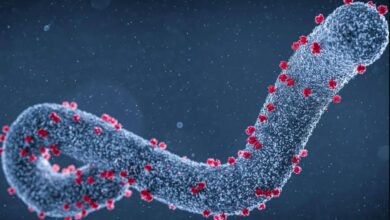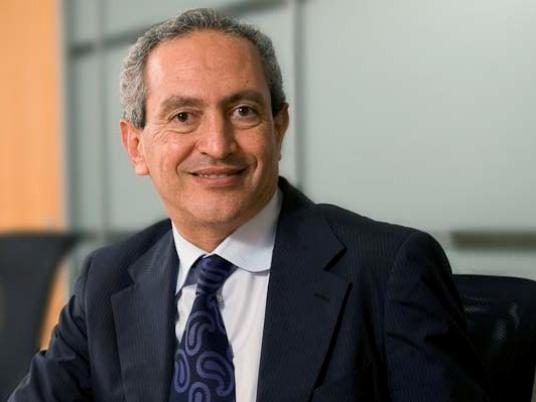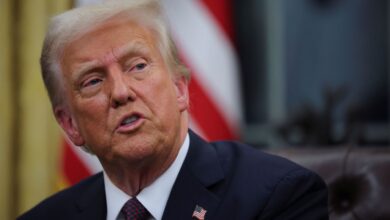
NEW YORK (AP) — Hundreds of businesses and schools in New York City neighborhoods where coronavirus cases have spiked were closed Thursday by order of the governor, but questions swirled about how effectively officials could enforce the shutdown in areas where it has been met with resentment.
The new rules were also met with legal resistance, as the Roman Catholic Diocese of Brooklyn and Agudath Israel of America, an Orthodox Jewish umbrella organization, filed lawsuits over a provision limiting attendance at indoor religious services to no more than 10 people.
Confusion and dismay reigned as the restrictions began to take effect.
In Brooklyn’s Borough Park section, the scene of two nights of protests against the clampdown by Orthodox Jews, some merchants subject to the shutdown order appeared to be operating as usual at midday, including a barber shop, cellphone stores and a toy store.
Mayor Bill de Blasio said 1,200 city workers would be out on the streets doing enforcement, though some of those efforts involved trying to educate businesses about rules imposed with little warning in hastily drawn zones with confusing borders.
All nonessential businesses in areas designated “red zones” in parts of Queens and Brooklyn by Gov. Andrew Cuomo were supposed to shut. Public and private schools were supposed to close, as well, within both the red zones and surrounding “orange zones” designated by the Democratic governor.
Exactly where those zones began and ended, though, wasn’t easily apparent from maps released by the governor’s office or the city. Parents at one Brooklyn school protested that their school had been shut by the city even though it lay outside the area the governor had designated for school closures.
The new restrictions involve parts of Brooklyn and Queens in New York City, sections of Orange and Rockland counties in the Hudson Valley and an area within Binghamton, near the Pennsylvania border.
Many of the neighborhoods where restrictions have been imposed are home to large Orthodox Jewish communities, and leaders of those communities have complained of being singled out for enforcement.
Agudath’s lawsuit challenging the attendance limits said they would be especially disruptive on Jewish holidays this coming weekend.
“By depriving plaintiffs and their congregants of the critical religious worship and practices associated with these upcoming holidays, defendant has trampled on their constitutional right to the free exercise of religion,” the lawsuit said.
In its lawsuit, the Diocese of Brooklyn said the new restrictions “go way too far, infringe way too much, and have no legitimate basis, as applied to the diocese’s churches.”
Enforcement appeared to be underway in Brooklyn’s Midwood section, where police had shut down at least two barber shops, including Coney Island Barber.
Owner Adeel Shakoor said business had been slow Thursday morning, with three customers coming in for hair cuts. A police officer came by in the early afternoon, however, and told him to shut down and monitor the news for updates on when he may reopen.
“It’s really not a good time have a barber shop,” Shakoor said, noting he hasn’t been permitted to offer shaving services for months. “It’s hard to know what’s going to happen.”
De Blasio urged business owners to follow the rules and avoid penalties or fines.
“When we have to bring consequences to bear we will,” he said, “but the first thing we want to achieve is compliance.”
In Borough Park, hundreds of men took to the streets Wednesday to protest restrictions for a second night.
Anger boiled over. Videos posted on social media showed a crowd chasing Jewish Insider reporter Jacob Kornbluh down a street and then trapping him against a storefront, where an unmasked local activist screamed in his face. Police officers then intervened and led Kornbluh to safety.
“I was just brutally assaulted, hit in the head, and kicked,” Kornbluh tweeted afterward.
Police say they’re investigating but there were no arrests.
De Blasio called the encounter “disgusting” at a briefing Thursday and promised police would refine their approach to further protests. A night earlier, two people making video recordings of the unrest were also chased by the crowd, with one man needing medical treatment after he was beaten, according to relatives.
Overall, the coronavirus has been spreading at a slower rate in New York City than in much of the rest of the country. But a small number of neighborhoods in Brooklyn and Queens have seen hundreds of new cases in recent weeks, leading to fears the spike could develop into a broader resurgence.
Cases of the virus were also climbing quickly in an area of upstate New York near the Pennsylvania border. Binghamton Mayor Rich David said he tested positive for COVID-19 late Wednesday.
“I’m feeling fine and will be resting at home,” he tweeted Thursday.
David’s announcement came a day after he appeared at news conference in Syracuse with other mayors. Albany Mayor Kathy Sheehan and Syracuse Mayor Ben Walsh were among the other mayors at that news conference entering a precautionary quarantine.
___




